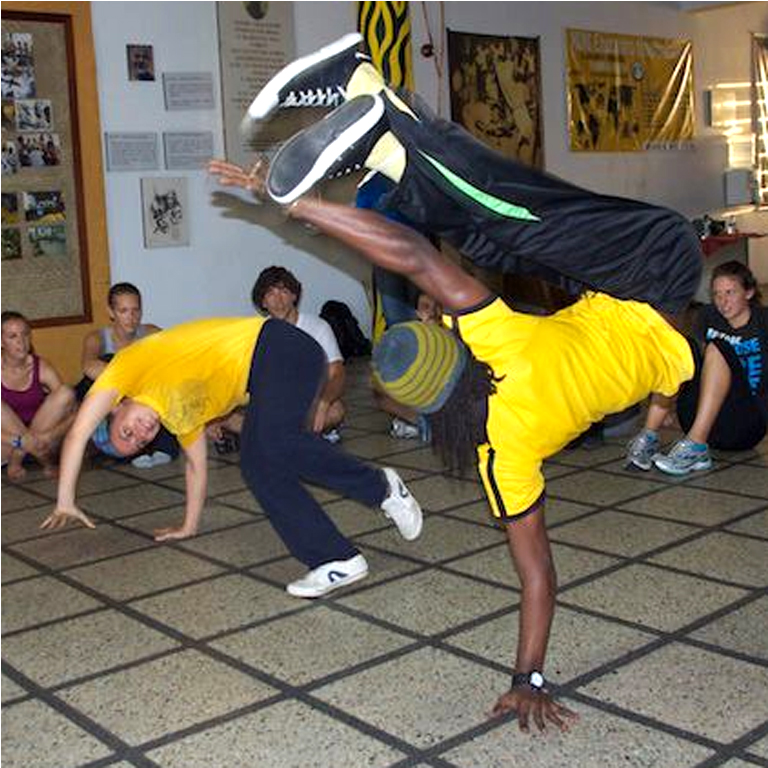Also mother capoeira call, the game of Angola, is the origin of capoeira is the type of poultry that is closest to that which would be "capoeira of slaves." Capoeira Angola is very tricky and needs to know how to play, to get a wheel. Full of precepts and rules to follow, comes to seem more a ritual ceremony than a game or a fight. His slow and rhythmic touch, its sad and painful litanies, can make anyone fall in love with this game. The capoeria Angola is the oldest style of play capoeira that exists today.Thanks to Master Pastinha, who practically lived his life for poultry, it was preserved so that today we find schools where you play as if playing in the IX century. And all the teachers "angoleiros" - as they are called - are keen to keep these traditions and passes them to their students, so it does not lose its roots. Within the Capoeira Angola there is no room for innovation or change because if that happened would be hurting its features to be leaving the game a cultural manifestation that started the all referred capoeira today. Therefore Capoeira Angola should be kept as it is and always has been. So to be called the Mother capoeira.Probably the name capoeira Angola (do not confuse with "Angolan capoeira" that would be nothing more than capoeira introduced in Angola by Brazilian) has arisen because the main port where slave ships docked the was located in Angola and the Portuguese, any black brought to Brazil was usually considered Angola. This should have remained until after the abolition, when blacks thus released but placed in unfavorable condition, had to choose between working for their former owners, bosses now, or fall into delinquency. And so, even after the abolition continued to be treated as "black Angola". Probably during this period the former slaves already practiced that would result in Capoeira Angola with not much, but already with some freedom, the streets and fields. Thing in the eyes of the settlers would be seen as vagrancy or black game, set of black Angola or simply playing Angola. As the term capoeira has existed since the time of the quilombos to designate a slave who fled, a slave could well be called "capoeira Angola."
The Capoeira Angola is almost ritualistic, full of principles that should be followed carefully. In Angola the match, the movements are slow, but treacherous. It is a game of great wickedness, where it is understood by malice, capoeira's ability to deceive your partner pretending to apply a stroke and actually apply another where least expected and at the time when least expected too. Within the Capoeira Angola these factors are key to the experience that only can be achieved.
Master Pastinha said that the good capoeira will not stain clothes and not lose the hat. You do not actually hit the companion, but must stop the foot at the right time showing this superiority hit it if they so wished.

